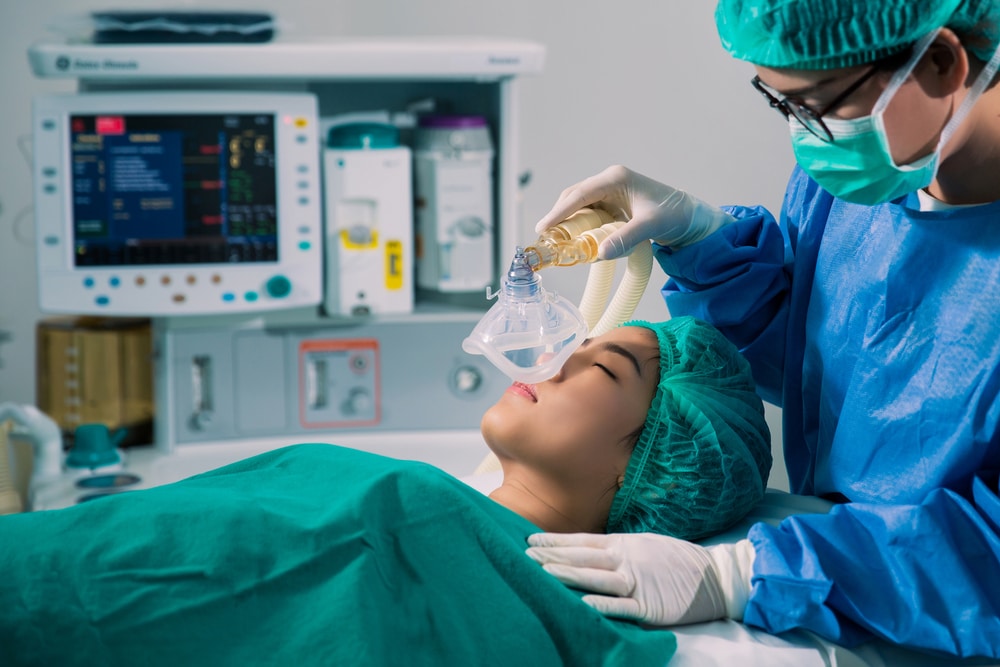
125 Japanese Medical Terms You Should Know [Audio Included]
Whether you find yourself residing in Japan or just visiting the country, having a grasp of medical terminology is invaluable.
While we all hope for good health, the unexpected can happen, and you never know when you’ll need to see a medical professional or discuss an ailment.
Furthermore, health-related topics frequently arise in everyday conversations.
And if you work in the medical field with Japanese-speaking patients, knowing this vocabulary is essential for providing effective care.
In this article, we’ll cover 125 Japanese medical terms for body parts, physical and mental ailments, treatments and more.
Contents
- The Body — 体 (からだ)
- Physical Ailments — 体の病気 (からだの びょうき)
- Mental Ailments — 精神病 (せいしんびょう)
- Treatment — 治療 (ちりょう)
- Medical Verbs — 医療動詞 (いりょうどうし)
- Other Useful Vocabulary — 他の役立つ語彙 (ほかの やくだつ ごい)
- How to Learn Medical Terms in Japanese
- And One More Thing...
Download: This blog post is available as a convenient and portable PDF that you can take anywhere. Click here to get a copy. (Download)
The Body — 体 (からだ)

These body parts in Japanese will come in handy when talking about medical issues, and about the body in general.
| Japanese | English |
|---|---|
| 足首 (あしくび) | ankle |
| 腕 (うで) | arm |
| 背中 (せなか) | back |
| 血液 (けつえき) | blood |
| 骨 (ほね) | bone |
| 頬 (ほお) | cheek(s) |
| 耳 (みみ) | ear |
| 目 (め) | eye |
| 足 (あし) | foot |
| 額 (ひたい), おでこ | forehead |
| 歯茎 (はぐき), 歯肉 (しにく) | gums |
| 手 (て) | hand |
| 頭(あたま) | head |
| 心臓 (しんぞう) | heart |
| 尻 (しり) | hip |
| 臓器 (ぞうき) | (internal) organ(s) |
| 腸 (ちょう) | intestine |
| 膝 (ひざ) | knee |
| 脚 (あし) | leg |
| 肝 (きも), 肝臓 (かんぞう) | liver |
| 腰 (こし) | lower back, lumbar spine, waist |
| 肺 (はい) | lung(s) |
| 口 (くち) | mouth |
| 筋肉 (きんにく) | muscle |
| 首 (くび) | neck |
| 鼻 (はな) | nose |
| 肩 (かた) | shoulder |
| 皮膚 (ひふ) | skin |
| 胃 (い) | stomach |
| こめかみ | temple |
| 腱 (けん) | tendon(s) |
| 喉 (のど), 咽喉 (いんこう) | throat |
| 歯 (は) | tooth |
Example:
(りんごをかじったら、はぐきから ちが でた!)
“When I bit into an apple, my gums bled!”
Physical Ailments — 体の病気 (からだの びょうき)

No one wants to deal with physical ailments, but they inevitably arise. Here are some Japanese terms so you’ll know how to talk about them when they do.
| Japanese | English |
|---|---|
| アレルギー (あれるぎー) | allergy |
| 細菌 (さいきん) | bacteria |
| 癌 (がん) | cancer |
| 咳 (せき) | coughing, a cough |
| 中耳炎 (ちゅうじえん) | ear infection |
| 熱 (ねつ) | fever, heat |
| 頭痛 (ずつう) | headache |
| 感染 (かんせん) | infection |
| 炎症 (えんしょう) | inflammation |
| 麻痺 (まひ), しびれ | numbness |
| 痛み (いたみ) | pain |
| 痰 (たん) | phlegm, mucus, snot |
| 肺炎 (はいえん) | pneumonia (inflammation of the lungs due to fluid) |
| 脊椎側湾症 (せきつい そくわんしょう), 側湾症 (そくわんしょう) | scoliosis (abnormal twisting or bending of the spine) |
| 喉の痛み (のどのいたみ) | sore throat |
| 捻挫 (ねんざ) | sprain, torn ligament |
| 捻挫した足首 (ねんざしたあしくび) | a sprained ankle |
| 腫れ (はれ) | swelling |
| 症状 (しょうじょう) | symptom |
| 腱鞘炎 (けんしょうえん), 腱炎 (けんえん), 腱の炎症 (けんのえんしょう) | tendonitis (inflammation of the tendon) |
| ウイルス (ういるす) | virus |
Example:
Mental Ailments — 精神病 (せいしんびょう)

Mental ailments are common and require specialized attention. In order to get the necessary help for ourselves or a loved one, we need to know how to talk about them.
| Japanese | English |
|---|---|
| 中毒 (ちゅうどく) | addiction |
| アルコール依存症 (あるこーる いぞんしょう) | alcoholism |
| 摂食障害 (せっしょくしょうがい) | anorexia |
| 不安症 (ふあんしょう) | anxiety |
| 注意欠陥・多動性障害 (ちゅういけっかん・たどうせいしょうがい) | attention-deficit/hyperactivity disorder (ADHD) |
| 自閉症 (じへいしょう) | autism |
| やけ食い (やけぐい) | binge eating |
| 双極性障害 (そうきょくせいしょうがい) | bipolar disorder |
| 依存症 (いぞんしょう) | dependency |
| うつ病 (うつびょう) | depression |
| 障害 (しょうがい) | disorder |
| 摂食障害 (せっしょく しょうがい) | eating disorder |
| 強迫性障害 (きょうはくせいしょうがい) | obsessive-compulsive disorder (OCD) |
| 创傷後ストレス障害 (そうしょうごすとれすしょうがい) | post-traumatic stress disorder (PTSD) |
| 精神障害 (せいしん しょうがい) | psychiatric disorder |
| 統合失調症 (とうごうしつちょうしょう) | schizophrenia |
| ストレス(すとれす) | stress |
Example:
彼女はうつ病と不安症に苦しんでおり、精神障害の治療を受けています。
(かのじょは うつびょうと ふあんしょうに くるしんでおり、せいしんしょうがいの ちりょうを うけています。)
“She’s suffering from depression and anxiety and is receiving treatment for her psychiatric disorders.”
Treatment — 治療 (ちりょう)

These terms for medical treatments in Japanese will certainly come in handy if you ever have to visit a hospital in Japan. They’ll also boost your understanding when watching medical dramas in Japanese!
| Japanese | English |
|---|---|
| 麻酔 (ますい) | anesthesia |
| 抗生物質 (こうせいぶっしつ) | antibiotics |
| 包帯 (ほうたい) | bandage |
| 歯科 (しか) | dental |
| 診断 (しんだん) | diagnosis |
| 医者 (いしゃ) | doctor |
| 緊急 (きんきゅう) | emergency |
| 検査 (けんさ) | examination |
| 病院 (びょういん) | hospital |
| 免疫 (めんえき) | immunity |
| 注射 (ちゅうしゃ) | injection |
| 婦人科 (ふじんか) | gynecology |
| 薬 (くすり) | medicine |
| 看護師 (かんごし) | nurse |
| 腫瘍学 (しゅようがく) | oncology |
| 耳鼻咽喉科 (じびいんこうか), 耳鼻科 (じびか) | otolaryngology (medicine of the ears, nose and throat) |
| 痛み止め (いたみどめ) | painkiller |
| 患者 (かんじゃ) | patient |
| 薬局 (やっきょく) | pharmacy |
| 錠 (じょう) | pill, counter for number of pills |
| 処方箋 (しょほうせん) | prescription |
| 向精神薬 (こうせいしんやく) | psychotropic drug (medicine for psychiatric disorders) |
| 放射線学 (ほうしゃせんがく) | radiology |
| 回復 (かいふく) | recovery |
| 外科 (げか) | surgery (department) |
| 手術 (しゅじゅつ) | surgery (operation) |
| 療法 (りょうほう) | therapy |
| 治療 (ちりょう) | treatment |
| レントゲン (れんとげん) | x-ray |
Example:
Medical Verbs — 医療動詞 (いりょうどうし)

Japanese verbs related to health and medical treatment are good to know so you can communicate clearly and understand the doctor’s instructions.
| Japanese | English |
|---|---|
| 麻痺する (まひする), しびれる | to be paralyzed |
| 出血する (しゅっけつする) | to bleed |
| 噛む (かむ) | to chew |
| 治す (なおす) | to fix, cure, heal someone |
| 痛い (いたい), 痛む (いたむ) | to hurt |
| 手術する (しゅじゅつする) | to perform surgery |
| 処方する (しょほうする) | to prescribe |
| 治る (なおる) | to recover |
| 再発する (さいはつする) | to relapse, the disease returns |
| 噛まず飲む (かまず のむ), 噛まないで飲む (かまないで のむ) | to swallow whole |
| 腫れる (はれる) | to swell |
| 薬を飲む (くすりをのむ) | to take medicine |
| 治療する (ちりょうする) | to treat |
| 捻挫する(ねんざする) | to twist/sprain/tear a ligament |
| 診察する (しんさつする) | to examine |
Example:
彼女は足を捻挫して、今は腫れているので、薬を飲んで痛みが和らぐのを待っています。
(かのじょは あしを ねんざして、いまは はれているので、くすりをのんで いたみがやわらぐのを まっています。)
“She twisted her ankle, and it’s swollen now, so she’s waiting for the pain to heal by taking medicine.”
Other Useful Vocabulary — 他の役立つ語彙 (ほかの やくだつ ごい)

Here are some more terms in Japanese related to health and medicine that you may find useful in your travels or daily life.
| Japanese | English |
|---|---|
| 急性 (きゅうせい), 急性的な (きゅうせいてきな) | acute (immediate, temporary) |
| 食後 (しょくご) | after a meal |
| 食前 (しょくぜん) | before a meal |
| 慢性 (まんせい), 慢性的な (まんせいてきな) | chronic (everlasting, recurring) |
| 先天性 (せんてんせい), 先天的な (せんてんてきな) | congenital (from birth) |
| 健康保険 (けんこう ほけん) | health insurance |
| 一日何回 ~したらいいですか? (いちにち なんかい~したら いいですか?) | How many times a day should I...? |
| 義~ (ぎ~) | prosthesis |
| 再発 (さいはつ) | relapse |
| 副作用 (ふくさよう) | side effect |
Example:
私には、慢性的な中耳炎があります。風邪を引くと、いつも中耳炎になります。
(わたしには、まんせいてきな ちゅうじえんがあります。かぜをひくと、ちゅうじえんになります。)
“I have chronic ear infections. Whenever I get a cold, I also get an ear infection.”
How to Learn Medical Terms in Japanese
Besides bookmarking this page and coming back to it at study time, here are some more ways to learn Japanese medical terms:
- Trick yourself into thinking you have to study for the Japanese Language Proficiency Test and crack out a practice book! Whether you’re actually taking the test or not, the JLPT materials are among the most useful sources for studying vocabulary in bulk, and you can see words used in real-life situations.
- If you have a smartphone, get an app that lets you create flashcards or vocabulary lists and fill them up with words you think will be useful. You can pull out your phone at the clinic and show the doctor if you can’t remember the right words to say. The FluentU program, for instance, lets you create flashcards from vocabulary words that are audio and video enhanced, so you can practice speaking the words or just play the words to the doctor.
FluentU takes authentic videos—like music videos, movie trailers, news and inspiring talks—and turns them into personalized language learning lessons.
You can try FluentU for free for 2 weeks. Check out the website or download the iOS app or Android app.
P.S. Click here to take advantage of our current sale! (Expires at the end of this month.)

- As long as you’re using a smartphone, try an app for learning kanji that may include some medical terms, so you can learn to read medicine boxes and prescriptions.
- Poke around in Japanese medical dictionaries, take a look at online vocabulary sources and take practice quizzes.
Adding some medical terms to your Japanese vocabulary will help you feel more at ease in health-related situations.
By learning these terms, you’ll be able to communicate with doctors, nurses and other medical staff (or patients) more effectively and find what you need at the pharmacy.
Try to learn a handful of new words each day, and you’ll soon have them all down!
Download: This blog post is available as a convenient and portable PDF that you can take anywhere. Click here to get a copy. (Download)
And One More Thing...
If you love learning Japanese with authentic materials, then I should also tell you more about FluentU.
FluentU naturally and gradually eases you into learning Japanese language and culture. You'll learn real Japanese as it's spoken in real life.
FluentU has a broad range of contemporary videos as you'll see below:

FluentU makes these native Japanese videos approachable through interactive transcripts. Tap on any word to look it up instantly.

All definitions have multiple examples, and they're written for Japanese learners like you. Tap to add words you'd like to review to a vocab list.

And FluentU has a learn mode which turns every video into a language learning lesson. You can always swipe left or right to see more examples.

The best part? FluentU keeps track of your vocabulary, and gives you extra practice with difficult words. It'll even remind you when it’s time to review what you’ve learned. You'll have a 100% personalized experience.
Start using the FluentU website on your computer or tablet or, better yet, download the FluentU app from the iTunes or Google Play store. Click here to take advantage of our current sale! (Expires at the end of this month.)


